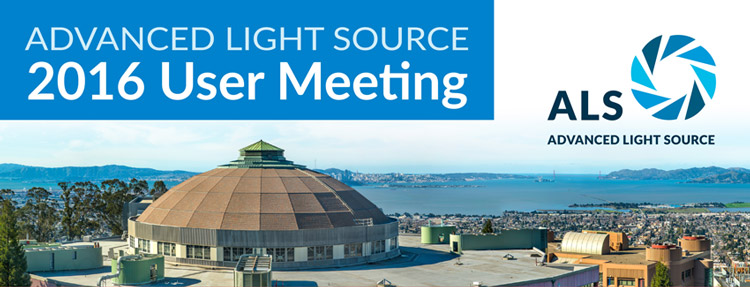
Park Systems is excited to announce its upcoming participation at the X-LAB Workshop 2016, an event being held alongside the Advanced Light Source 2016 User Meeting. The X-LAB Workshop is being organized by members of the Advanced Light Source (ALS) and Molecular Foundry (MF) and will be held in Berkeley, CA from October 4 to 5, 2016. The event is focused on exploring the impact of combining synthesis, spatially-resolved synchrotron and non-synchrotron characterization, prediction, and machine learning to provide output for the science case supporting a new major facility, the proposed X-LAB concept, at LBNL.
Workshop speakers include multiple guests from LBNL and other organizations as well as Park Systems’ own Dr. Ryan Yoo. Dr. Yoo will be presenting “High Accuracy Atomic Force Microscope with Self-Optimizing Scan Control” at 10:40 AM on October 5. The X-LAB Workshop will be free for all those already attending the ALS 2016 User Meeting.
- Event Date : October 4-5, 2016
- Venue : Lawrence Berkeley National Laboratory (Buildings 6 and 50) — Berkeley, CA
About Lawrence Berkeley National Laboratory:
In the world of science, Lawrence Berkeley National Laboratory (Berkeley Lab) is synonymous with “excellence.” Thirteen Nobel prizes are associated with Berkeley Lab. Seventy Lab scientists are members of the National Academy of Sciences (NAS), one of the highest honors for a scientist in the United States. Thirteen of our scientists have won the National Medal of Science, our nation’s highest award for lifetime achievement in fields of scientific research. Eighteen of our engineers have been elected to the National Academy of Engineering, and three of our scientists have been elected into the Institute of Medicine. In addition, Berkeley Lab has trained thousands of university science and engineering students who are advancing technological innovations across the nation and around the world.
Berkeley Lab is a member of the national laboratory system supported by the U.S. Department of Energy through its Office of Science. It is managed by the University of California (UC) and is charged with conducting unclassified research across a wide range of scientific disciplines. Located on a 202-acre site in the hills above the UC Berkeley campus that offers spectacular views of the San Francisco Bay, Berkeley Lab employs approximately 3,232 scientists, engineers and support staff. The Lab’s total costs for FY 2014 were $785 million. A recent study estimates the Laboratory’s overall economic impact through direct, indirect and induced spending on the nine counties that make up the San Francisco Bay Area to be nearly $700 million annually. The Lab was also responsible for creating 5,600 jobs locally and 12,000 nationally. The overall economic impact on the national economy is estimated at $1.6 billion a year. Technologies developed at Berkeley Lab have generated billions of dollars in revenues, and thousands of jobs. Savings as a result of Berkeley Lab developments in lighting and windows, and other energy-efficient technologies, have also been in the billions of dollars.
Berkeley Lab was founded in 1931 by Ernest Orlando Lawrence, a UC Berkeley physicist who won the 1939 Nobel Prize in physics for his invention of the cyclotron, a circular particle accelerator that opened the door to high-energy physics. It was Lawrence’s belief that scientific research is best done through teams of individuals with different fields of expertise, working together. His teamwork concept is a Berkeley Lab legacy that continues today.
- Link : http://www.lbl.gov/




